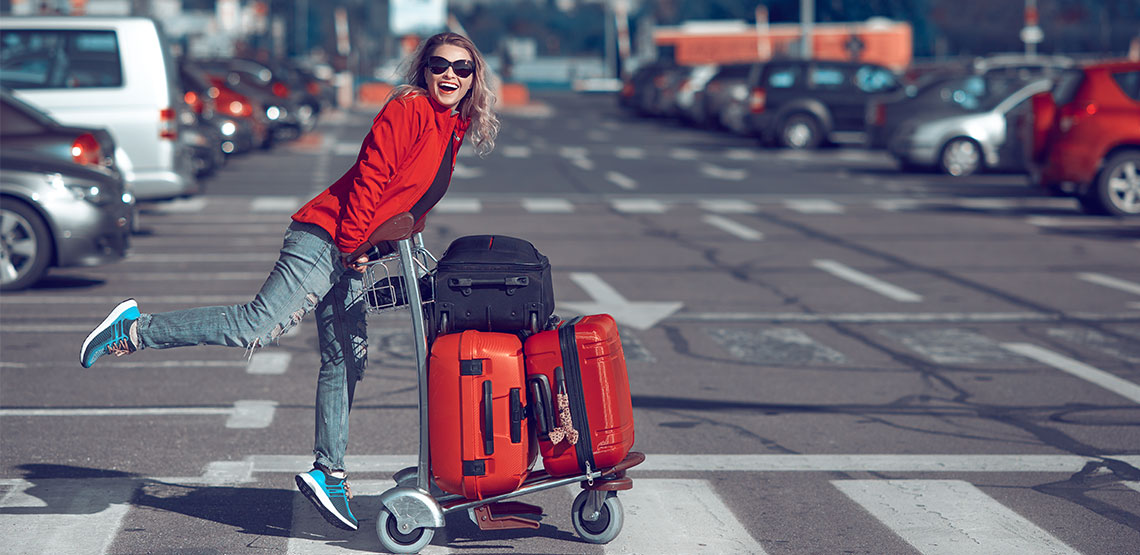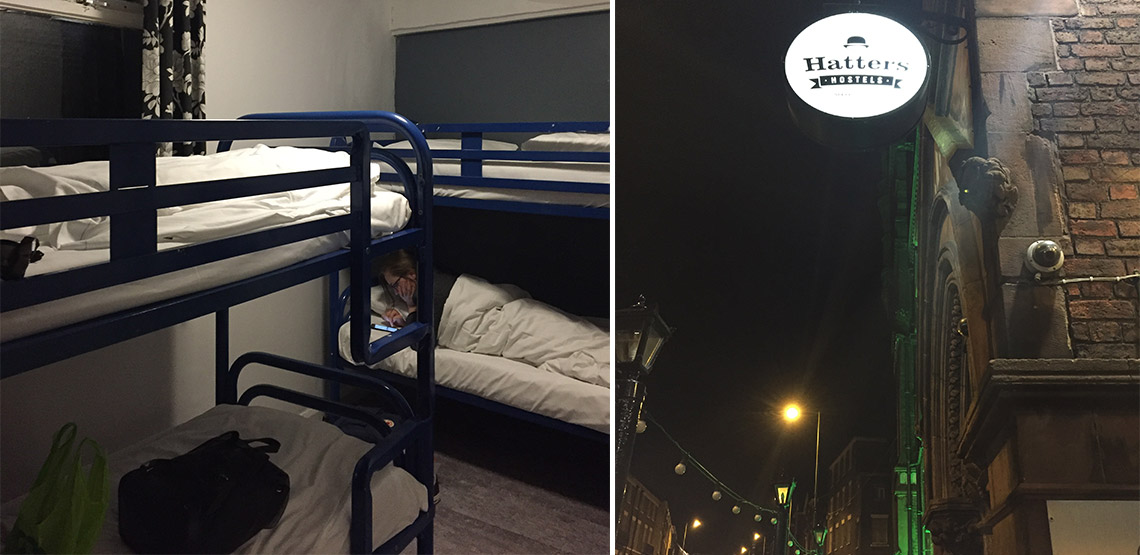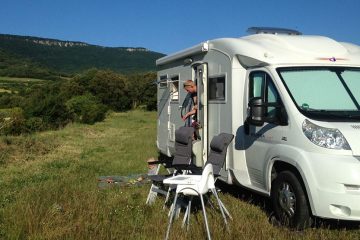Adventures Abroad: Your Complete Guide to Moving to Another Country
Taking the Big Step Abroad
Moving to a new country can be an exciting, nevertheless daunting, experience. It’s important to prepare yourself as much as possible before you make the trip, so you can fully appreciate your experience once there. The good news is, there is much information available to you if you only know where to look.
Before I moved from Canada to England, I was overwhelmingly excited, but nervous because I wasn’t sure what to expect, or where to even start the process of moving abroad. Now that I’ve returned from my time living overseas, I have plenty of advice on how to prepare for the adventure you’re about to embark on. Here’s my best advice on how to move to another country.
What to Pack
The first thing to focus on is what to pack. This differs slightly depending on the country you’re moving to, but there are a few basics that are applicable to everyone.
Maps
When I moved overseas, I wasn’t fully prepared for the amount of traveling I was about to do. I knew I would spend the majority of my time in England, but hadn’t decided what other countries I was going to visit once there.
While it’s fun to travel to various places with no predetermined plans, it can also be dangerous or, even worse, boring. This is why it’s essential to have not only maps, but travel guides. These are easy enough to obtain; you can find them at most any bookstore or drugstore. You can also check them out at your local library and write down any key notes you think you may find useful.
While it seems counter-intuitive to pack an array of maps in the limited space in your suitcase, it’s imperative that you bring them. Not only will they highlight key parts of whichever city/country you’re visiting, they will also help you get out of sticky situations — for instance, when you’re out of data, can’t find WiFi, or your phone dies, and you’re not sure how to get back to your accommodations.
Bonus travel tip: Write down the various addresses you’ll be staying at while traveling and carry them with you. These can be useful when consulting your map, asking a local for directions or directing a cabbie where to take you.
Travel guides are useful to help plan a trip, as they highlight popular tourist locations and tell you things like when the Colosseum opens on a Wednesday in Italy, for instance. I can’t stress their importance enough; they’re super useful for any amateur traveler and they help ensure your experience traveling to a new country is a good one.
Maps and guides are also useful even if you aren’t planning on traveling outside of the country you’re moving to, as they show you key areas that are worth looking at while you’re there.
Battery Pack
A battery pack for your phone is sure to come in handy in various situations when you live in another country. When you first move internationally, you may find the outlets are different from the country you’re used to. Don’t have the right adapter? You’ll be thankful you have your portable battery pack.
If you’re anything like me, you’ll even struggle when you plug in your adapters. Once again, this is where your battery pack comes into play. It’s also a good idea to have when your phone dies under the heat of the sun in Portugal as you’re wandering the streets.
Clothes
Make sure you pack for the climate you’re going to. If you’re moving to Russia in the midst of a cold winter, for example, ensure you pack a warm enough coat and boots for those frigid and bitter months. No matter where you go, you should also pack a good pair of walking shoes and comfy clothes.
I was so excited about moving to the very fashion-forward England that I neglected to pack warm and comfy clothes, much to my dismay when I arrived in the chilly January rain. I had to go to the mall almost immediately for a nice sweater and a good pair of shoes.
Passport Pouch
It’s also a good idea to bring a passport pouch to carry your passport in while traveling. You don’t want to risk your passport getting stolen if you leave it behind in your hostel room while you’re out exploring.
A backpack is nice to carry as well. Not only can they be fashionable, they are also practical and let you carry all of your stuff so you have your hands free for other things, like taking pictures.
Money
By far the most important thing to pack is the currency of whichever country you’re traveling to. Before I moved from Canada to England, I exchanged my money for £500 in cash to bring with me abroad.
You shouldn’t need to bring such a large sum, but it’s a good idea to at least think about it, especially if you’re unsure when you’ll be able to set up a bank account, or have your money wired over to you once you arrive.
This cash is necessary for transportation, food and objects you may need to buy once there. Just make sure that when you’re traveling with such a large sum you guard it as carefully as possible, as pickpockets are more adept than we tend to give them credit for.
Comfort Items
Make sure you also pack comfort items; things that remind you of home. For me it was a blanket my mom had made for me with a picture of my cat and dog printed on it, but you can expand this to other things.
For example, if you’re from Canada, bringing an item such as a stuffed beaver is even a good idea as it serves as a gentle reminder of home without bringing on an overbearing surge of homesickness. Printed-out pictures or handwritten letters from friends and family are also good items to bring with you.
What You Don’t Need
Some things you shouldn’t need to pack include sheets, bedding or kitchenware. While it’s a good idea to pack essentials for the bathroom such as face wash, shampoo and conditioner, you’ll most likely be able to obtain the other things once you arrive to your destination country.
How to Pack
Oftentimes, when you’re moving overseas it can be slightly overwhelming trying to determine not only what to pack, but how to go about packing it. My first time moving abroad, I was an overambitious, not very practical, optimistic, amateur traveler.
I assumed taking one suitcase and one carry-on would be adequate for my six months abroad, as I didn’t see the point in taking the entirety of my wardrobe with me. How very wrong I was.
How Much Luggage Should You Take?
First of all, if you’re traveling to a country known for its diverse range in weather, it’s a good idea to pack clothes for all occasions. Unfortunately, one suitcase is not enough to fit an array of clothes for all types of weather, not to mention shoes, books, makeup, journals, maps, cameras or camera equipment, and anything else that’s important to you.
Traveling from Canada to Europe usually affords you only one suitcase, which is typical for most airlines, and most destinations. However, the additional cost of adding on luggage really isn’t that much (for me, it was roughly $100 CAD) and it’s definitely something you should think about if you’re planning on moving abroad for a lengthier period of time.
That being said, luggage space is cherished space. Don’t feel the need to pack unnecessary items just because you’re worried you won’t be able to obtain them once you arrive at your destination. There will always be some sort of mall or shopping area close to your accommodations where you’ll be able to pick up larger items, such as bedding.
Once you arrive at your destination, there are usually luggage carts strewn about the area you are to collect your luggage, so it’s less of a burden having two or three suitcases as you can just stack them on your cart and bring them to your respective pick-up place. It’s a good idea to note, however, that some airports have luggage carts that require change in the native currency; before you move abroad, make sure you bring some loose coinage, along with your cash.
Organizing Your Suitcases
If you’re planning on divvying up your items in separate suitcases, make sure you carefully consider what you are to pack in each one, as often luggage does get lost! That’s the sad reality of traveling, unfortunately. While your items will eventually come back to you, it can sometimes take up to several months, and this can be especially stressful on a new traveler who’s already feeling a little homesick. I therefore recommend taking your most important items with you in your carry-on.
For example, I brought my laptop, makeup, toiletries, extra underwear, pajamas and a change of clothes in my carry-on, as well as a book and my various chargers. You can pack based on what’s most important to you, although I do recommend bringing hygienic products with you, as it’s normal to feel quite dirty and rugged after your flight. If your luggage gets lost, you’ll be thanking yourself that you’ll at least be able to brush your teeth.
Upon Arrival
Once I arrived at my destination country, it was easy enough to bring all my luggage to my new home. Cabs are usually lined up at any airport, and I was able to get one, pay with cash, and be on my way.
Cabs
Be aware there are sometimes scam cab companies that line up in the frock of other cars. While most mean no harm and are just trying to get an extra dollar to bring home with them, it still is an uneasy sensation knowing your cabbie isn’t certified and could be potentially dangerous. It’s therefore a good idea to do some research beforehand about the types of cabs you’ll be seeing in your destination country, and which ones are most well-known and trusted.
For example, in England there a variety of cabs you may encounter, but the most common are black cabs, usually with a print on the side (unless you’re in London), with a lit-up “taxi” sign on the top.
Uber
For those of you who may be tempted to use Uber, while this may be easier and cheaper, make sure the country you’re going to has a partnership with Uber, so you’re not left lost and confused once you’ve arrived. When I traveled to Ireland, for example, while they do use Uber, it worked very differently from the way I expected it to based on my previous times using it. There was no fixed rate, and my driver got the destination confused.
Other Pick-up Services
If the idea of getting a cab in an already bustling airport makes you nervous, you can arrange a pick-up service through an array of credible companies online. Or, if you’re traveling there for a job or a student-exchange, oftentimes your employer or your adviser will have a pick-up service arranged for you. Just make sure you ask.
When traveling around the world, it is good for LGBTQ+ travelers to know places and situations to avoid. Here are LGBT travel safety tips.
Accommodations
Finding accommodations in a country you have no previous living experience in is extremely daunting. It’s important to assess all your options before making a decision. The easiest and cheapest way to find all the options available to you is through the internet. Oftentimes ads will be posted online for apartments, lofts or a room in a house.
My friends traveling to London for the first time, for example, were able to sublet a furnished one-bedroom apartment in London through an ad they found online.
This is also a great way to assess just how much you’ll be expected to pay for accommodations in whichever country you’ll be living in. Make sure you plan accordingly and factor in any additional costs that may sneak up on you before you fly away to your dream destination. Always make sure you have enough to at least pay for the first few months of rent, as well as a bit extra for food, furniture, bedding, etc.
Finding Accommodations Before You Arrive
If living with strangers doesn’t scare you, then there are an array of options open to you. There are often a myriad of ads online for an additional person to occupy an apartment, house, etc. Don’t go into it blindly, however. If you’re going to be living with other people, make sure you Skype them at least once to get a feel for who they are and if they’re to be trusted.
Also ask them to take you on a virtual tour through your potential accommodations so you can make sure the pictures look as they do advertised, and swap contact information.
Research the area you’re going to be living in before you arrive. If the place has a high crime rate for example, it’s probably not a good idea to move there until you are fully comfortable with the country you moved to.
Waiting to Find Accommodations
For the more debonair and daring travelers out there, there is the option of getting a room in a hotel before settling on permanent accommodations. It may put your mind at ease getting to know the area before settling on a place you found online, and this also gives you the added benefit of being able to tour a place before you decide to live there.
Be weary that finding a place may be a bit harder than you expected, however. Most places will already be full if you’ve left your home country in September for example, as this is when most rent contracts begin. This doesn’t mean you won’t be able to find a place, but it may take you longer than expected.
Final Thoughts
Moving internationally can sound like an overwhelming and scary experience. However, if you take things one day at a time, it becomes less so. Moving abroad does require research and energy, but there are plenty of people and platforms willing to help you, as long as you seek them out.
The truth is, nothing is able to replace the sensational feeling of picking up your routine life at home and moving it to an unexplored place. You’ll become a better person for it.










